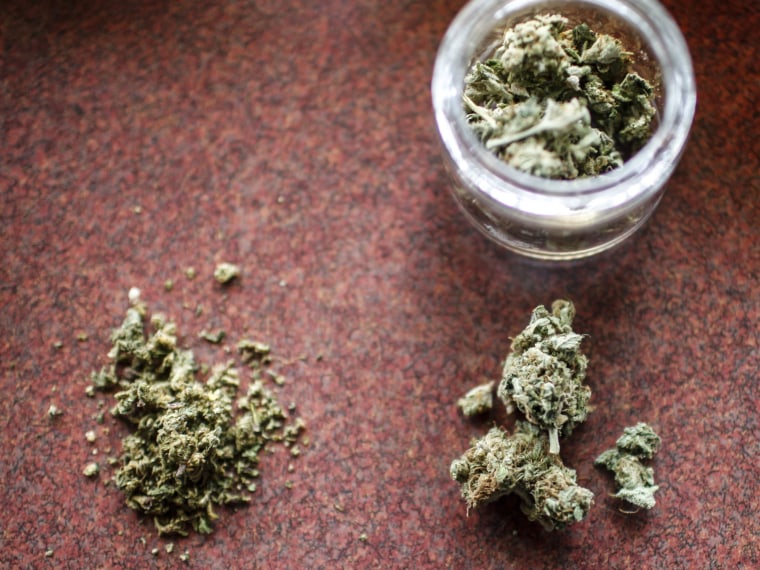The U.S. will allow states to continue their experiments with legalized marijuana—as long as they enact "strict regulatory schemes" that adhere to federal priorities such as keeping the drug out of the hands of kids, the Justice Department said Thursday.
The Obama administration's new stance does not change the federal classification of marijuana as an illegal drug but does free up the nearly two dozen states that have recently made small amounts of marijuana legal for medicinal purposes, or, in Washington and Colorado, for recreational purposes to move forward with their local laws.
"These schemes must be tough in practice, not just on paper, and include strong, state-based enforcement efforts, backed by adequate funding," Deputy Attorney General James Cole wrote in a memo to US Attorneys. "[I]f any of the stated harms do materialize—either despite a strict regulatory scheme or because of the lack of one—federal prosecutors will act aggressively to bring individual prosecutions focused on federal enforcement priorities and the Department may challenge the regulatory scheme themselves in these states."
The memo provides guidance for federal prosecutors, setting eight specific enforcement priorities for them to follow, which double as "harms" states need to avoid if the wish to prevent federal interference with state marijuana laws. While those priorities apply to US attorneys nationwide, they will have the biggest impact in states where some form of marijuana production and use is legal under state law.
Earlier this month, Attorney General Eric Holder said that that federal prosecutors would stop seeking harsh mandatory minimum sentences for low-level drug crimes, a policy which helped put record numbers of people behind bars.
Eighteen states and the District of Columbia now allow some distribution of marijuana, mostly for medical reasons. Washington and Colorado became the first states to legalize recreational marijuana use in referendums last November, setting up a conflict with federal law which still prohibits marijuana use. The Justice Department's memo ostensibly sets that conflict aside for now, by stating that the feds will not challenge those laws in court. If the results of legalized recreational marijuana use in Washington and Colorado are seen as positive, other states could follow suit.
In the past, however, federal prosecutors have taken a hard line on legalized pot use even as Obama administration officials publicly insisted otherwise. In order to forestall federal interference with state marijuana laws, Cole's memo says states must work hard to prevent:
- the distribution of marijuana to minors;
- revenue from the sale of marijuana from going to criminal enterprises, gangs and cartels;
- the diversion of marijuana from states where it is legal under state law in some form to other states;
- state-authorized marijuana activity from being used as a cover or pretext for the trafficking of other illegal drugs or other illegal activity;
- violence and the use of firearms in the cultivation and distribution of marijuana;
- drugged driving and the exacerbation of other adverse public health consequences associated with marijuana use;
- growing of marijuana on public lands and the attendant public safety and environmental dangers posed by marijuana production on public lands;
- preventing marijuana possession or use on federal property.
Legalized marijuana could ultimately have a significant impact on the number of people coming in contact with the criminal justice system. A 2013 report from the American Civil Liberties Union found that marijuana possession arrests account for nearly half (46%) of all drug arrests," and that "on average, a black person is 3.73 times more likely to be arrested for marijuana possession than a white person, even though blacks and whites use marijuana at similar rates."
